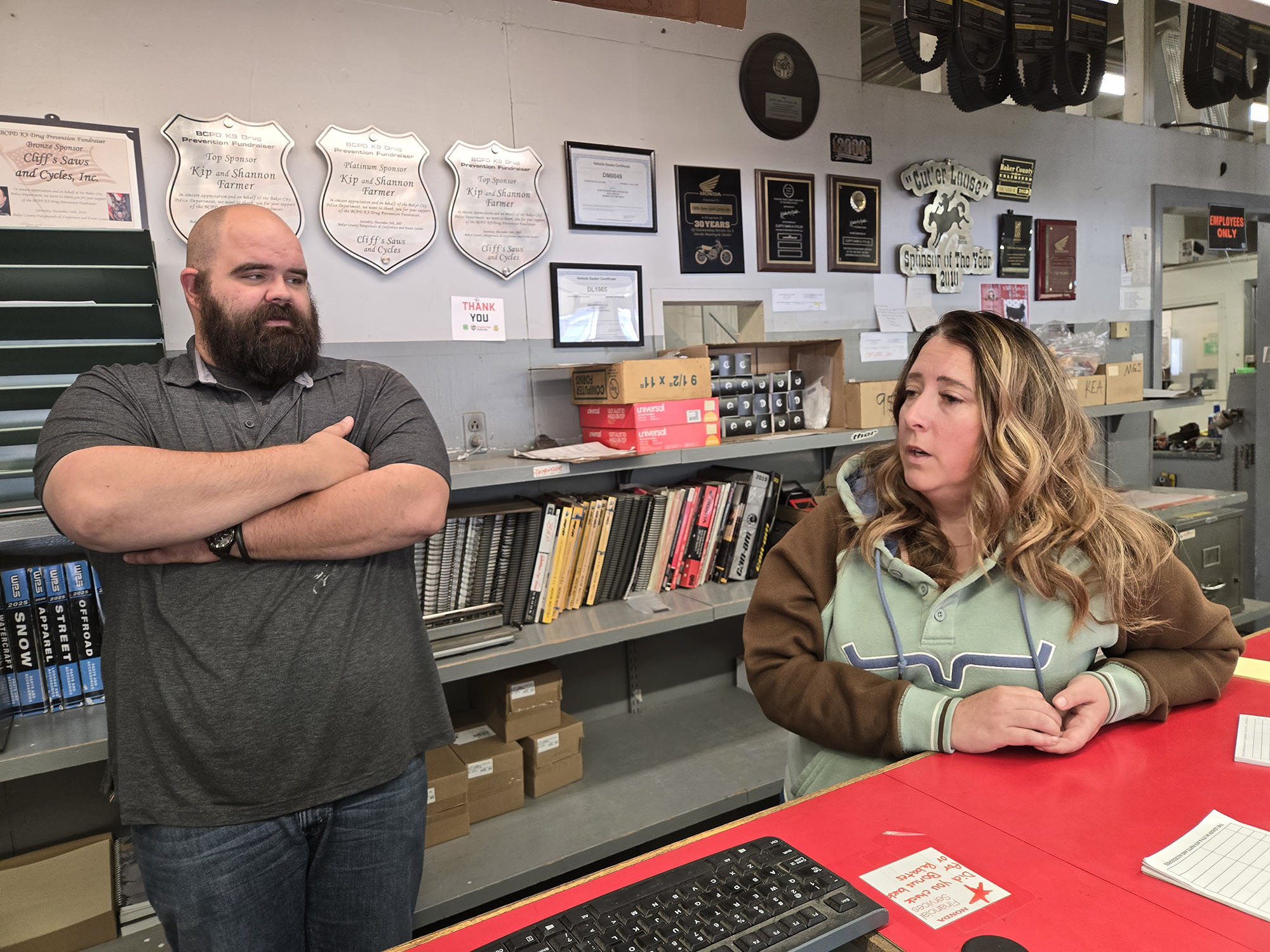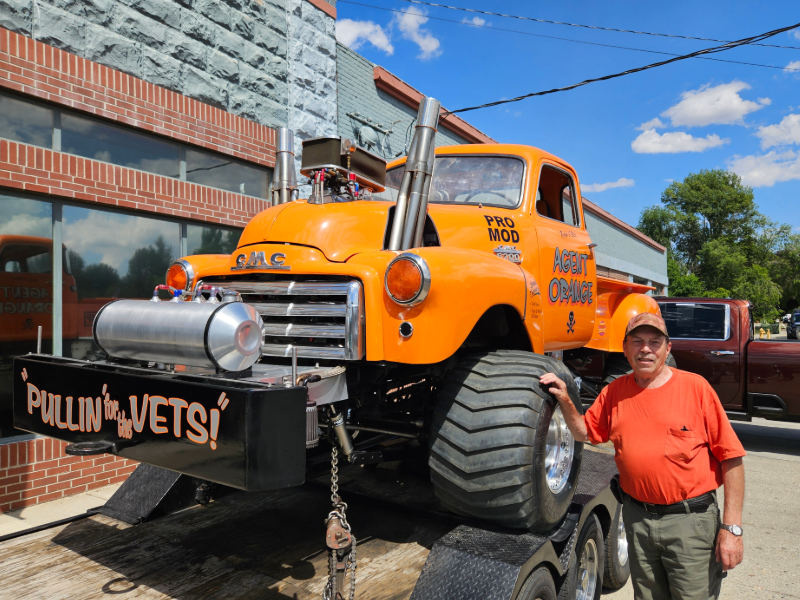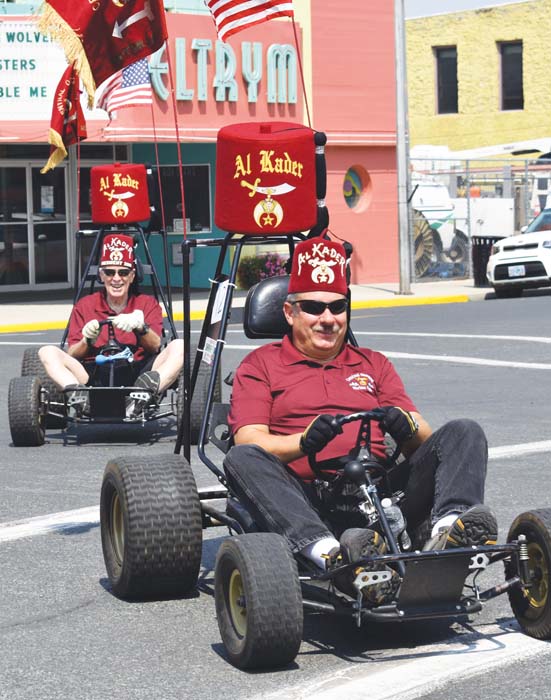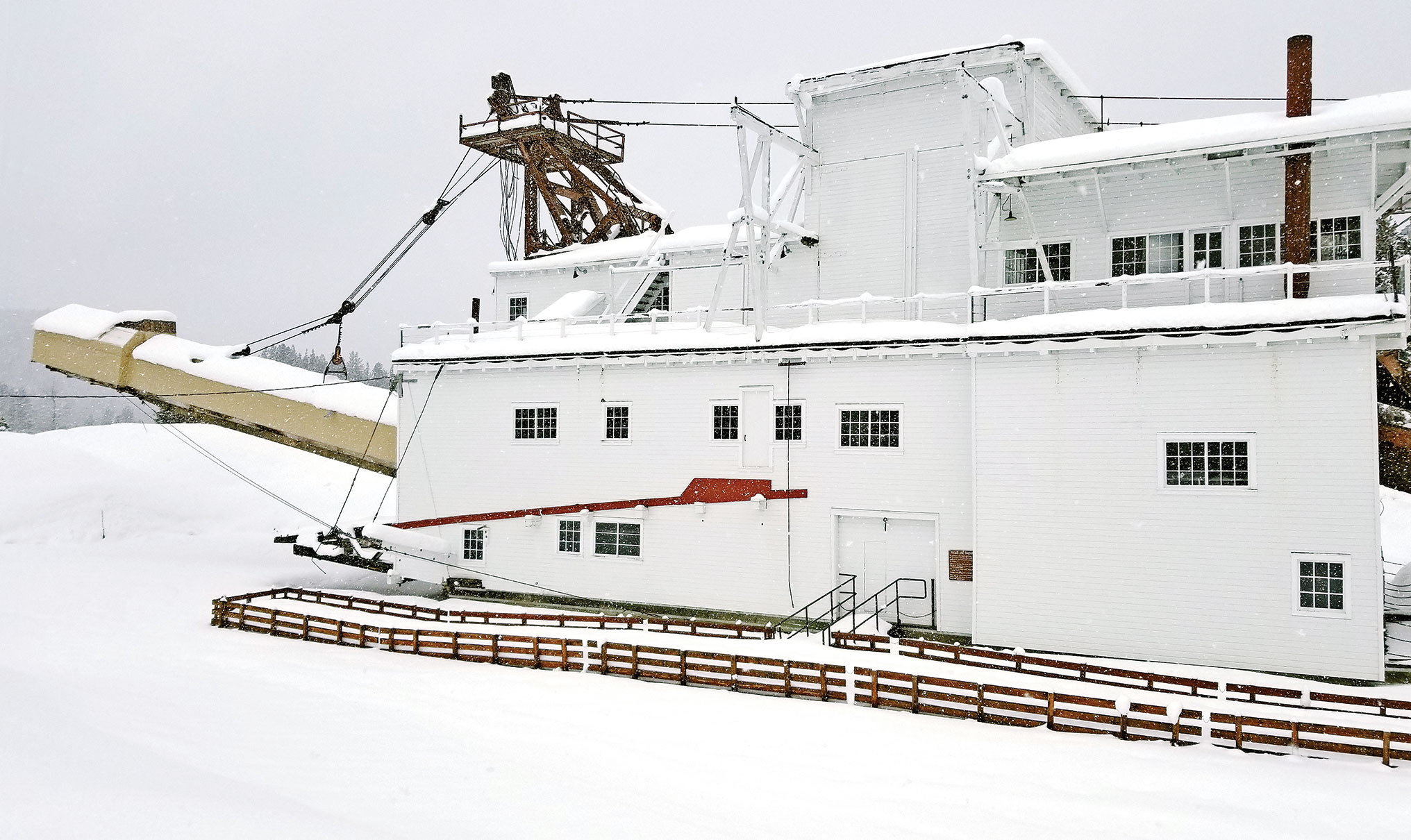Locals exchange knowledge with Argentine visitors
Published 12:00 am Monday, April 21, 2008

- Veronica Farini, left, is a a member of a Rotary Exchange group from the Patagonia region of Argentina. She spent a day at the Animal Clinic in Baker City Thursday. Stephanie Lewis, clinic employee, instructed Farini on how to give an injection to a yearling horse. Veterinarian George Risdal introduced Farini to several medical procedures that commonly occur at the clinic. (Baker City Herald/S. John Collins).
By ED MERRIMAN
Trending
Baker City Herald
Five visitors from Argentina spent a few days in Baker County last week learning about the area’s agricultural industry and andquot;promoting peace and understanding among nations,andquot; according to Jim Gibson, president of the Rotary Club of Baker City.
Baker County’s climate and topography of agricultural valleys surrounded by mountains is similar to the Patagonia region in Southern Argentina that members of the cultural exchange group call home.
Trending
The climates are similar, except when it’s winter here, it’s summer there, which presents an opportunity for agricultural import/export exchanges between the two areas, according to Juan Sebastian Forcat, who works in a cornmeal plant during the week, but on weekends helps run the family farm and import/export business.
During their visit to Baker County, the Argentinians visited Thomas Angus Ranch, the Allen Ranch, Blatchford Farms, the Baker Animal Clinic, Baker Dental Group, and the Baker High School music and band departments.
One of the first things Forcat noticed about Baker County is the herds of Hereford and Angus cattle, which are the same breeds his family raises in Argentina.
andquot;It’s a diversified farm,andquot; Forcat said.
Other crops grown on his family’s farm include soybeans, peas and beans, wheat and corn.
They also operate plants on their farms that produce cornmeal and flour, he said.
andquot;I am working with export and import with Canada, South America and Africa, but not the USA because I don’t know people from here, but maybe I can start,andquot; Forcat said.
andquot;I would also like to start export and import with the USA,andquot; Forcat said. andquot;I hope to meet people from here for contact about my work.andquot;
The Argentine group arrived in Baker City Wednesday afternoon and stayed through the weekend.
andquot;Everybody here are very nice people. I am very happy to come, and I hope to come back,andquot; Forcat said.
Other members of the group included two molecular biotechnologists, Lucrecia Pobliti and Veronica Farini; Matias Lestani, a professor of Agro Economy at the University of Salvador; and Marcos Laurens, a dentist and member of the Sarmiento Rotary Club who served as the Argentinian team leader.
Pobliti’s work in molecular biology involves modifying bacteria found in the soil to improve nutrient uptake by plant roots, boost growth and improve water utilization by the plants.
andquot;I work with bacteria that has the ability to live in the roots of soybeans. They fix nitrogen from the air in the soil and give it to the plant so farmers don’t need as much chemicals,andquot; Pobliti said.
andquot;There are other types of bacteria that can be bred to improve development of roots in wheat and grass seed, so it is important for cattle, too,andquot; she said.
For Pobliti, the Rotary program provided an opportunity for an exchange of information and ideas in her field of expertise.
andquot;I went to labs here and I tell them what I am doing, and they teach me what they are doing and about the equipment they have,andquot; Pobliti said.
Back home in Argentina, Farini is involved in molecular testing of embryos to identify sex and genetic abnormalities.
andquot;What I do is perform genetic tests for humans for abnormalities, and now my lab is interested in doing the same thing in cattle,andquot; Farini said. Dairy farmers can benefit from genetic testing of embryos to determine whether an embryo is male or female before it is implanted in a cow.
andquot;Dairy farmers want to produce mostly females capable of producing milk. Obviously they don’t want males, because they don’t produce milk,andquot; Farini said. andquot;Embryo testing is also valuable in beef cattle to do paternity tests for the genetic heritage of champion bulls and heifers.andquot;
During a stop at Oregon State University in Corvallis, Farini had an opportunity to see how genetic testing is done there, and she was especially excited that andquot;they gave me their recipes for all the protocols that were very successful for them.andquot;
In Baker City, she experienced a day in the life of Veterinarian George Risdal at the Baker Animal Clinic, treating sick calves afflicted with calf scours, spaying and neutering cats and dogs, giving injections and castrating yearling horses.
andquot;This is the first time we’ve had Rotary exchange people,andquot; Risdal said. andquot;I think it is as interesting for us as it is for them.andquot;
When asked to describe one of her favorite experiences in the Baker City area, Farini said she especially enjoyed eating the mad alligator pasta at Barley Brown’s BrewPub.
andquot;I never ate alligator before,andquot; Farini said. andquot;It tastes like beef that is cut long and thin.andquot;
Lestani said he enjoyed learning new things about the high quality agricultural education programs at high schools he visited and at Oregon State University.
andquot;I think one of the most important advantages you have is the high school and university education. That makes all the difference compared to the rest of the world,andquot; Lestani said.
He said the technical aspects of farming taught at the high school level here is more advanced that what it taught in high schools in Argentina and other places he has visited, including Europe.
Lestani said cattle are produced in some parts of the Patagonia region, but they’re generally raised entirely on pasture and for the most part are not finished in feedlots.
Sheep are the predominant livestock in the Buenos Aires Province, which is one of four provinces in the Patagonia region.
Laurens, a dentist and musician, was the only member of the group with no direct ties to agriculture. He divided his time in Baker City largely between visits at the Baker Dental Group and Baker High School, where he played with members of the high school band and music students Friday.
While he enjoys his dental practice and doing dental surgery, Laurens said his favorite hobby is playing a guitar in a rock ‘n’ roll band called andquot;The Sundays,andquot; so-named because that’s the day he gets together and practices music from the ’60s, ’70s, ’80s and ’90s with his band mates, including a lawyer, architect, English teacher and various students.
In addition to the agriculture-related activities and day of music at Baker High School, the Argentine group toured the Baker Heritage Museum (formerly Oregon Trail Regional Museum) and the Sumpter Dredge State Heritage Area and Historical Museum, watched movies during Rotary Movie Weekend at the Eltrym Historic Theatre and visited the Oregon Trail Interpretive Center.
Gibson said the Rotary Club of Baker City participates in an exchange program sponsored by Rotary International in which representatives from local Rotary clubs in the United States travel to a foreign country to learn about their culture and business practices, and representatives from those countries in return visit the USA.
andquot;We do exchanges all over the world, and in all areas. This one happened to be in agriculture,andquot; Gibson said. andquot;Our Rotary district helps fund the exchanges.andquot;
andquot;A lot of people who go on these exchange trips make friends, and people often keep in touch with each other for years,andquot; Gibson said. andquot;We learn about them, and they learn about us.andquot;
Baker City Rotarians hosting the Argentine guests last week included Kurt Miller, Kari and Jack Waldhaus, Dennis and Darlene Teskey, Dan Moore, Tom and Janet Van Diepen.
andquot;It’s been a wonderful experience,andquot; Kari Waldhaus said of her time hosting Farini and getting to know members of the Argentine exchange group.
andquot;What’s interesting is learning about their country (and personal lives),andquot; Waldhaus said.
Waldhaus learned that it’s currently sunny fall weather with temperatures around 75 degrees in the Patagonia region of Argentina, which the Argentinians are looking forward to getting back to after spending the first three weeks of their trip in nearly constant rain in the Western Oregon communities of Corvallis, Salem, Silverton, Canby, Newberg and Portland.
They enjoyed Baker City’s sunny weather, the historic downtown center, the variety of restaurants and television show, especially the andquot;Lostandquot; series, Waldhaus said.
andquot;Apparently everybody in Argentina watches that show,andquot; Waldhaus said.
This afternoon the group headed to La Grande, followed by a visit with the Rotary Club of Wallowa County to complete their month-long stay in Oregon.
Miller said the Rotary International exchange program started in 1965 and over the years 50,000 business men and women worldwide have participated.









